About the Programme
The Women in Conservation Technology Programme (WiCT) is supporting early career women conservation technologists in Kenya. WILDLABS, Fauna & Flora International (FFI), and Ol Pejeta Conservancy (OPC) launched this programme with a goal of fostering, empowering and developing women conservation technologists and leaders in order to advance and strengthen conservation impact. With this programme, we are supporting women, who are recognized as key conservation stewards, to grow their skills, knowledge, and networks to then apply them in their own work and eventually mentor others in both their host institutions and in future cohorts to come.
The first cohort of this Programme was selected out of a field of 200 applicants. Our 15 emerging female Kenyan conservationists are now going through a 6-month training, aimed to equip them with foundational knowledge in conservation technology and to advance their potential for impactful conservation careers.

Get to know our first cohort by checking out their profiles here on WILDLABS:
- Ann Wambui from Mugie Conservancy
- Christine Mwaniki Mwende from African Wildlife Foundation
- Consolata Gathoni Gitau from University of Nairobi
- Cynthia Waithera Gichimu from Friends of Kinangop Plateau
- Eunice Wanjiku Kamau from Lewa Wildlife Conservancy
- Janet Kavutha Simon from Giraffe Conservation Foundation
- Mary Waithira Ngugi from Mpala Research Center
- Naomi Kung'u from Action For Cheetahs in Kenya
- Zipporah Nyokabi Mureithi from Egerton University
- Phyllis Sherril Masudi from International Livestock Research Institute
- Rita Orahle from Loisaba Conservancy
- Rose Hakofa Abae from Wildlife Research Training Institute, Coastal and Marine Research Ecosystem Center
- Susan Lentaam from Loisaba Conservancy
- Susana Wachia Kihia from Kenya Marine and Fisheries Research Institute:Oceanography and Hydrography department
- Wismer Cherono from Mpala Research Center
Through a unique blend of technical training, networking, and collaborative empowerment sessions, our 15 participants will emerge as leaders in conservation, contributing to more effective and inclusive conservation efforts in Kenya and beyond.
The women selected for this programme an exceptional opportunity to interact with other women facing similar challenges and with similar goals, and are encouraged to identify areas where they can support each other, learn, and grow together. This strong and connected community built from the Programme is also helping to lay the foundation for establishing a network of conservation technology players and experts in East Africa through the WILDLABS East Africa Community.
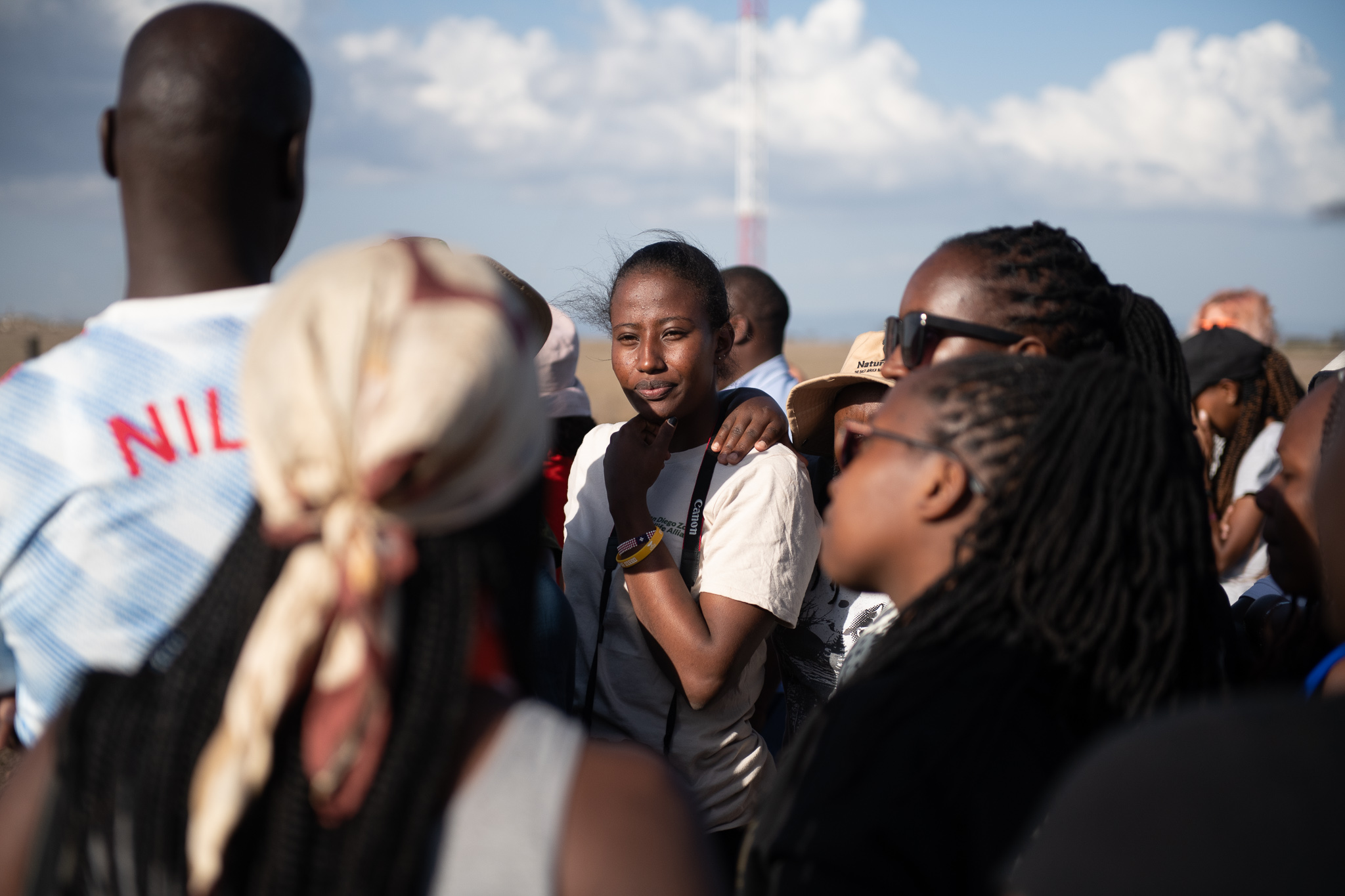
The First Workshop: A week like no other!
On the 15-21st May, 2022, we kicked off the six month programme with our first in-person workshop. This was a jam-packed week of technical training, field activities, professional development and empowerment sessions, and networking.
With our 15 early career women in conservation along with a team of expert trainers and facilitators, we had an immersive training week focused on delivering a broad but engaging introduction to conservation technology, coupled with mentorship sessions exploring the challenges and pathways to leadership as a woman in the Kenyan conservation sector.
A group of young women united by conservation tech! It was such an honor being in the midst of other women in conservation. I enjoyed the interaction we had and got to understand and appreciate what each of us is doing. I also acquired a lot from the technical and leadership sessions and look forward to implementing the knowledge and skills gained in my conservation work and my career.
This workshop brought together women working on a wide range of conservation technology projects, from a variety of conservancies and organizations, with diverse sets of skills, but with the same objective: to gain new knowledge and skills on conservation technology, share their experiences, network, build their careers, and become leaders in their spaces.

The overarching goal of this first workshop was to build capacity on the application of existing and emerging conservation technologies, as well as provide an opportunity for professional development and networking; it was exactly as envisioned, and so much more! Our days started with sit-down technical sessions in the morning, hands-on field experiences in the afternoon, and professional development and leadership sessions in the evening.
The training team for this first workshop were staff from Ol Pejeta Conservancy including: William Njoroge, Jason Irura, Kennedy Muriithi, Benard and Alfred, WILDLABS: Stephanie O'Donnell, Talia Speaker and Netty Cheruto, and Fauna & Flora International: Meredith Palmer. We also privileged to be joined by two outstanding women leaders in the Kenyan conservation sphere, Angela Kabari and Lucy Waruingi, who were invited as both technology experts and professional mentors during the week. The full team of expert speakers and facilitators went above and beyond to ensure delivery on the workshop objectives and guided the participants through a wide range of engaging exercises that enabled them to understand conservation technology concepts, identify underlying challenges, ideate possible solutions, and commit to their next steps.

Sit down technical sessions
We had interactive sessions where a range of practical and real-time case studies and demos were highlighted and discussed. To allow for meaningful conversations, and with an aim to spark new ideas, most of the training involved a theoretical walk-through of the tools, techniques, and systems deployed in conservation and participants later had a chance to ask questions, share their interactions with the tech tools, and get feedback.
The case study examples used during facilitation were mostly on tools deployed locally and discussions focused on conservation challenges unique to Kenya; this was a great way to engage participants so as to relate well and make connections from the discussion topics.
Through the presentations, participants had a hands-on introduction to a wide variety of hardware and software tools used in wildlife monitoring and protection. A myriad of great topics were covered during the technical sessions, which included:
- Using Data to Drive Decision-Making.
- Wildlife Monitoring with Camera Traps and GPS Collars.
- Camera traps and Artificial Intelligence.
- Drones: Perception vs Reality
- Introduction to Thermal Imaging
- Passive Acoustic Monitoring + Case Study
- Introduction to Biologgers
- Earth Ranger & Asset Tracking
- Exploration of Data Dashboards
- GIS for Conservation
- Conservation Tech Ethics
- Remote Sensing for Conservation
- Manipulating Remote Sensing Data
- Navigating the Room; Where it Happens
The topics covered were relevant, well-structured and timely, offering guidance on solving some of the most pressing conservation challenges in the country such as human-wildlife conflict, poaching, habitat degradation, proper wildlife monitoring, protection, and management, just to mention a few. From the discussions and reflections with the participants, it was evident that a couple of these challenges are common to most of the conservancies and protected areas in which they work and operate. It was therefore important to ensure that, as they go back to their host institutions and projects, they are equipped with relevant tools and skills to advance their work.
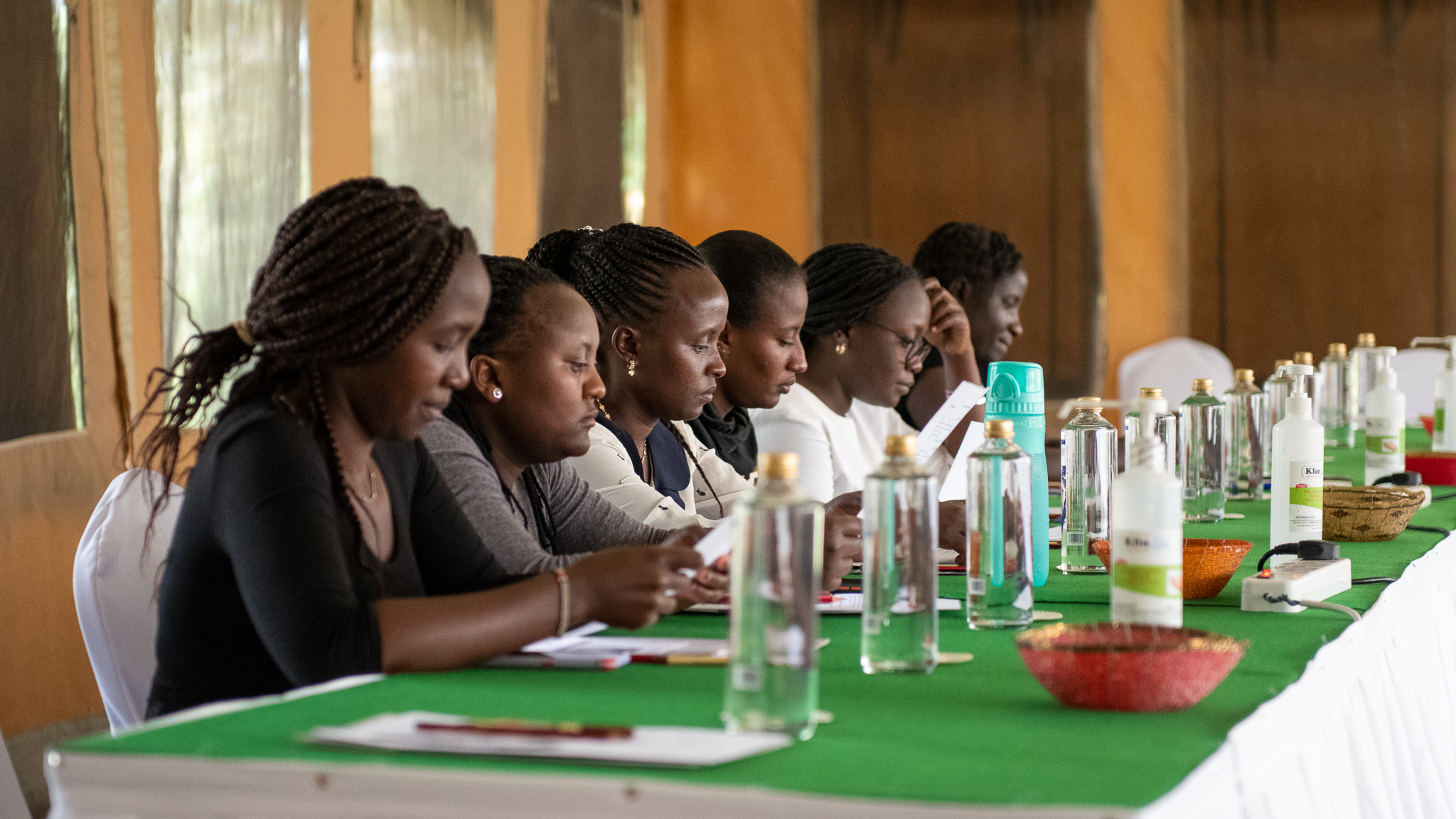
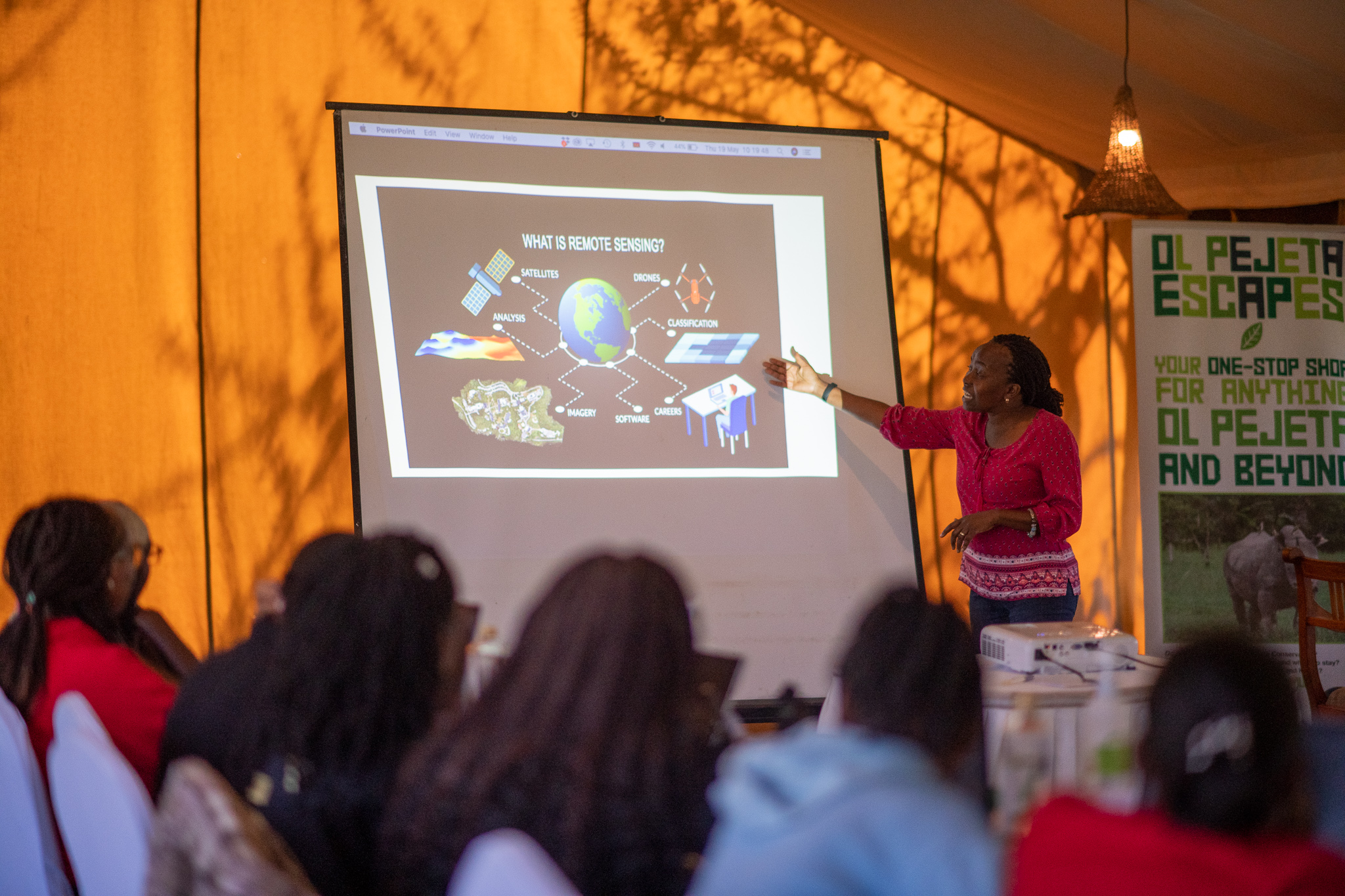

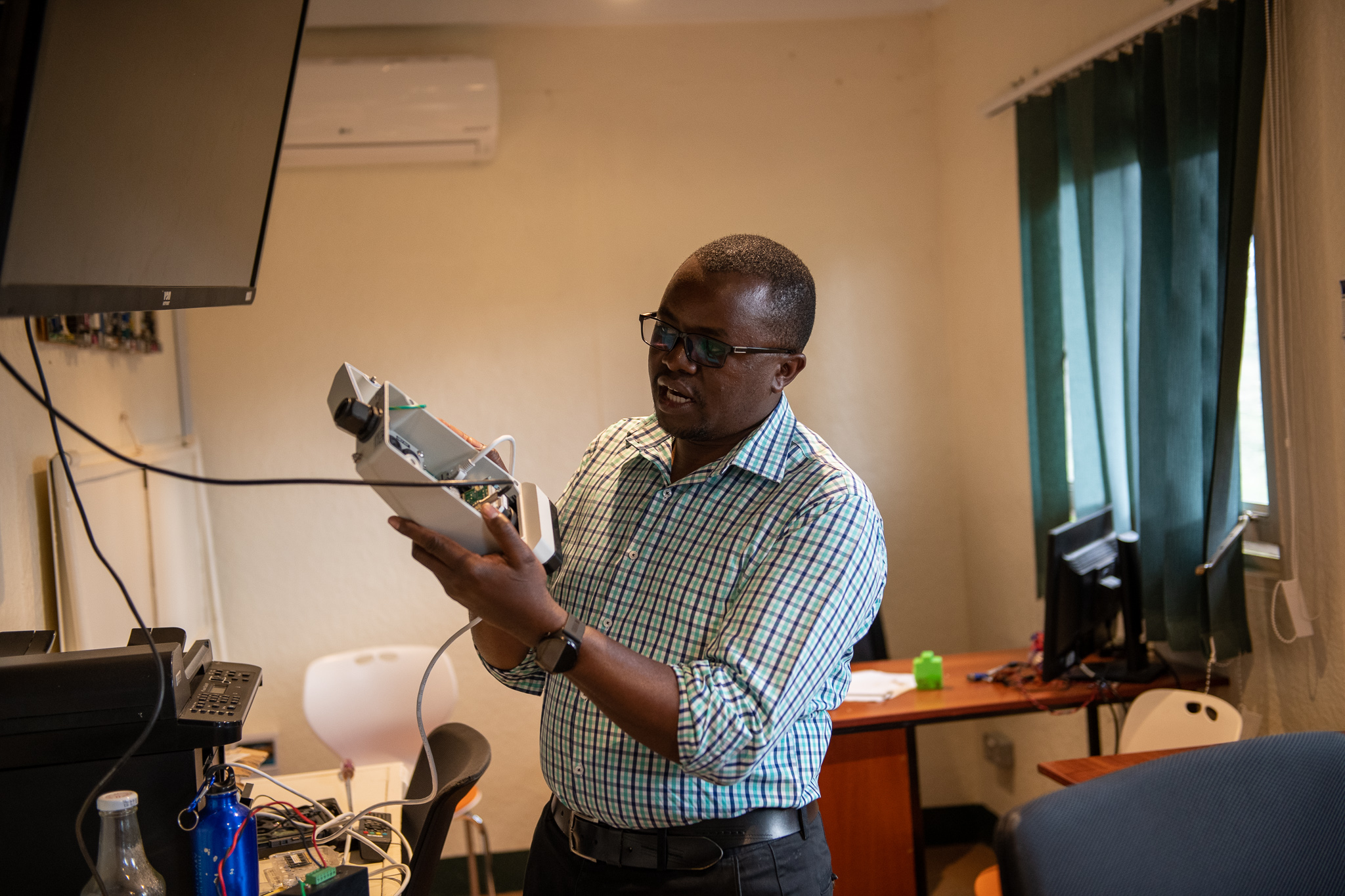
Field sessions
Taking place across Ol Pejeta Conservancy’s stunning 90,000 acres, the field sessions each provided an exciting, hands-on adventure after mornings of technical lectures. From lion tracking using radio telemetry, to camera trap installation, to visiting the K9 anti-poaching unit for dog tracking, to data collection using SMART, to site visits to anti-poaching thermal camera installation points, and even flying a drone, participants had a chance to learn more on the practical employability of tech tools. At the same time, they got to have a one-of a kind experience spotting all kinds of wildlife in OPC’s beautiful landscape, meeting Baraka - the Blind Rhino - and even seeing the last two female northern white rhinos in the world (Najin and Fatu).
These sessions facilitated better understanding on topics discussed and gave the participants an opportunity to contextualize the solutions, gain more practical understanding of technology-assisted wildlife conservation, and develop a range of skills which will be useful in their work and projects. The cutting-edge technologies deployed at Ol Pejeta Conservancy were an important aspect to ensuring the successful delivery of field activities, since participants were able to interact with advanced and up-to-date technologies that hold so much promise in supporting effective monitoring, protection, and management of wildlife.
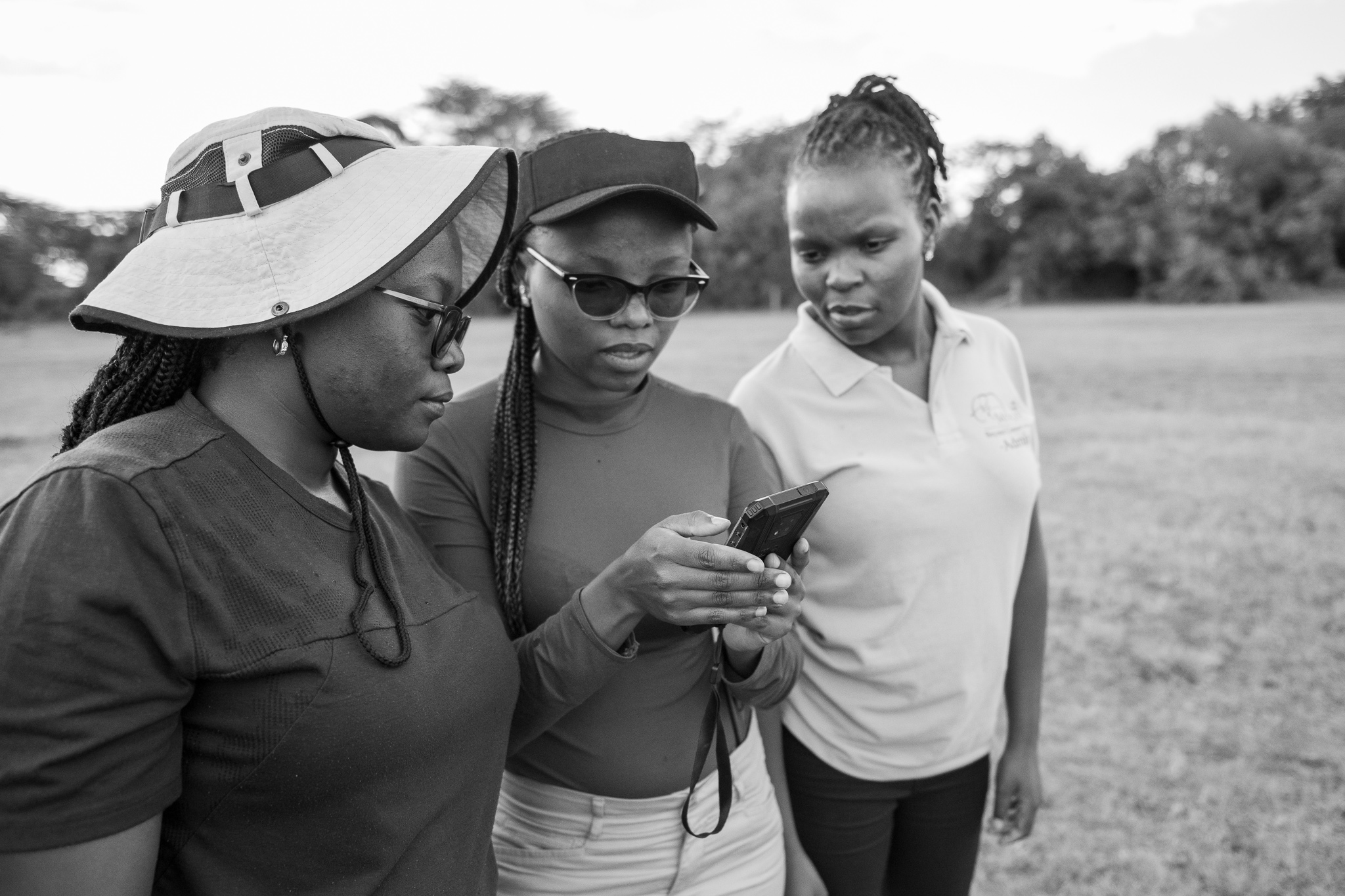


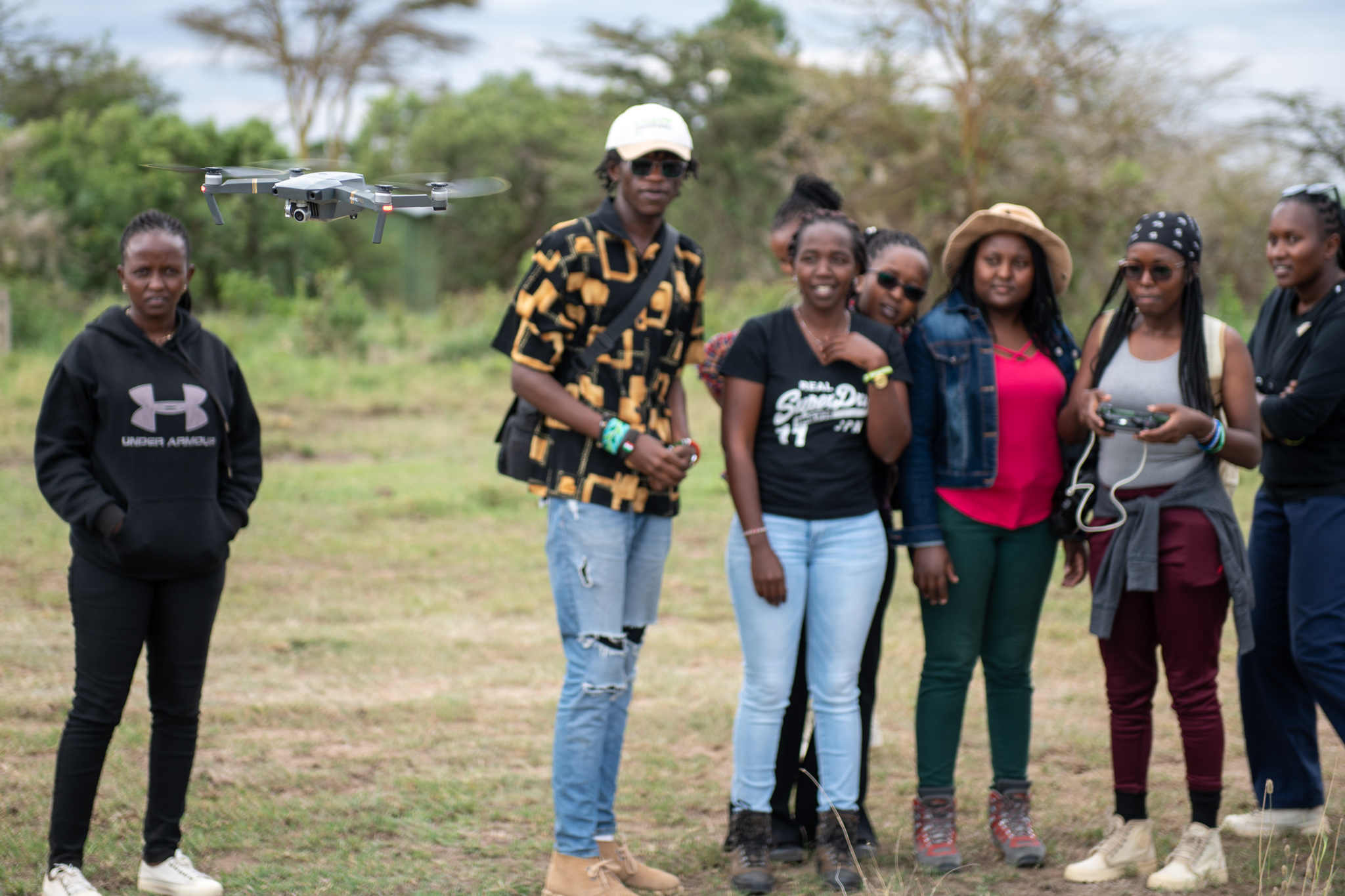
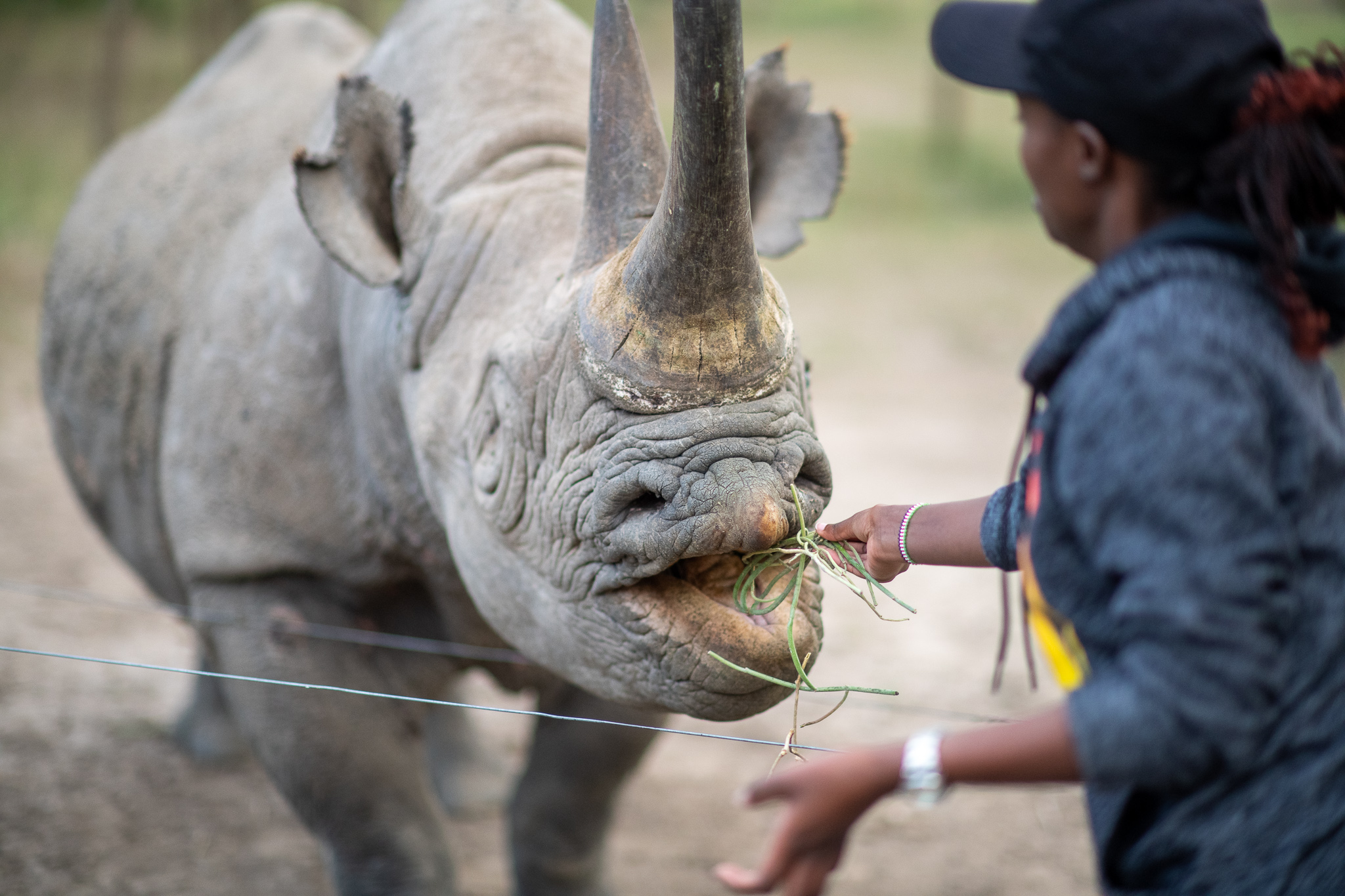
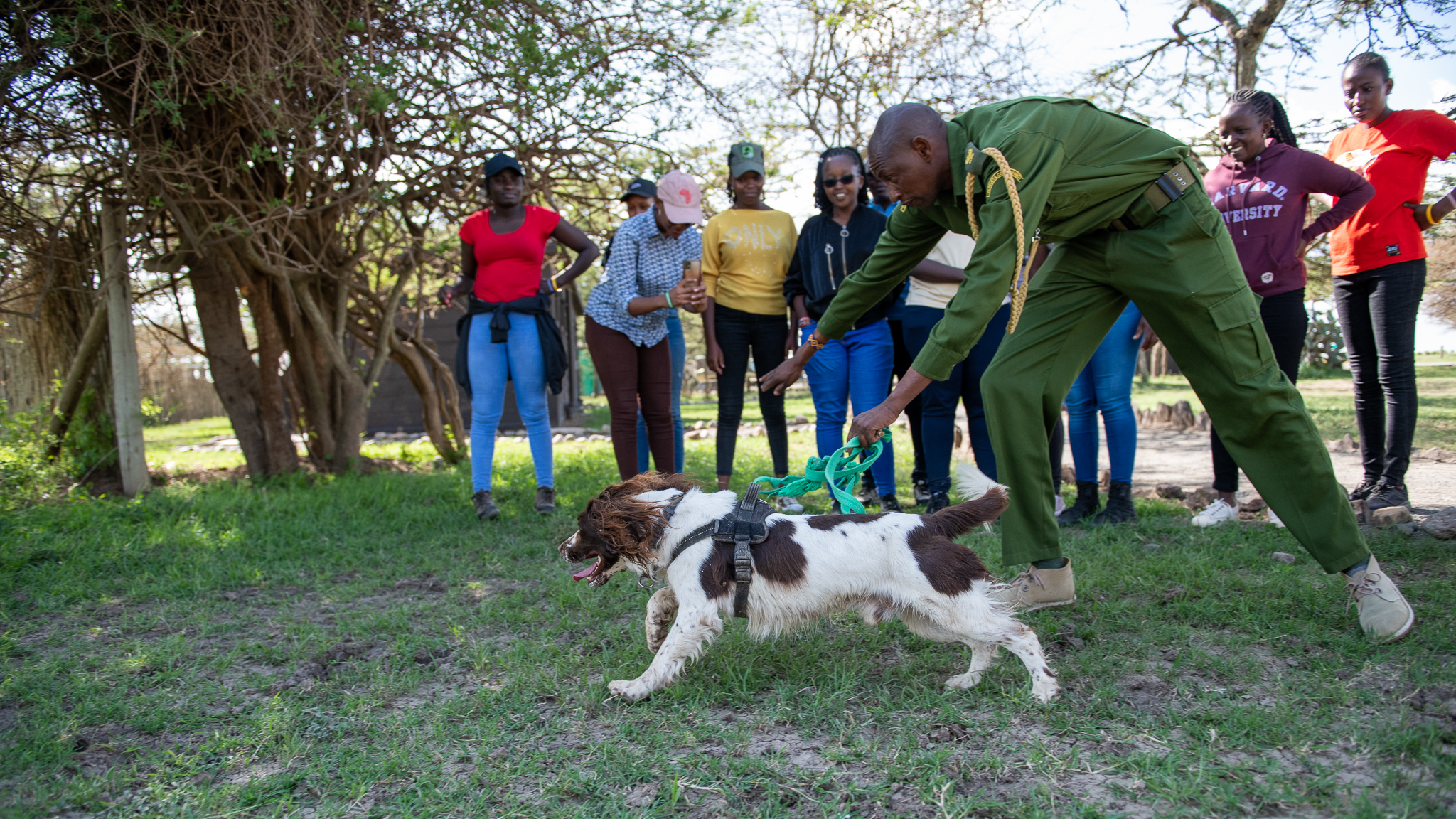
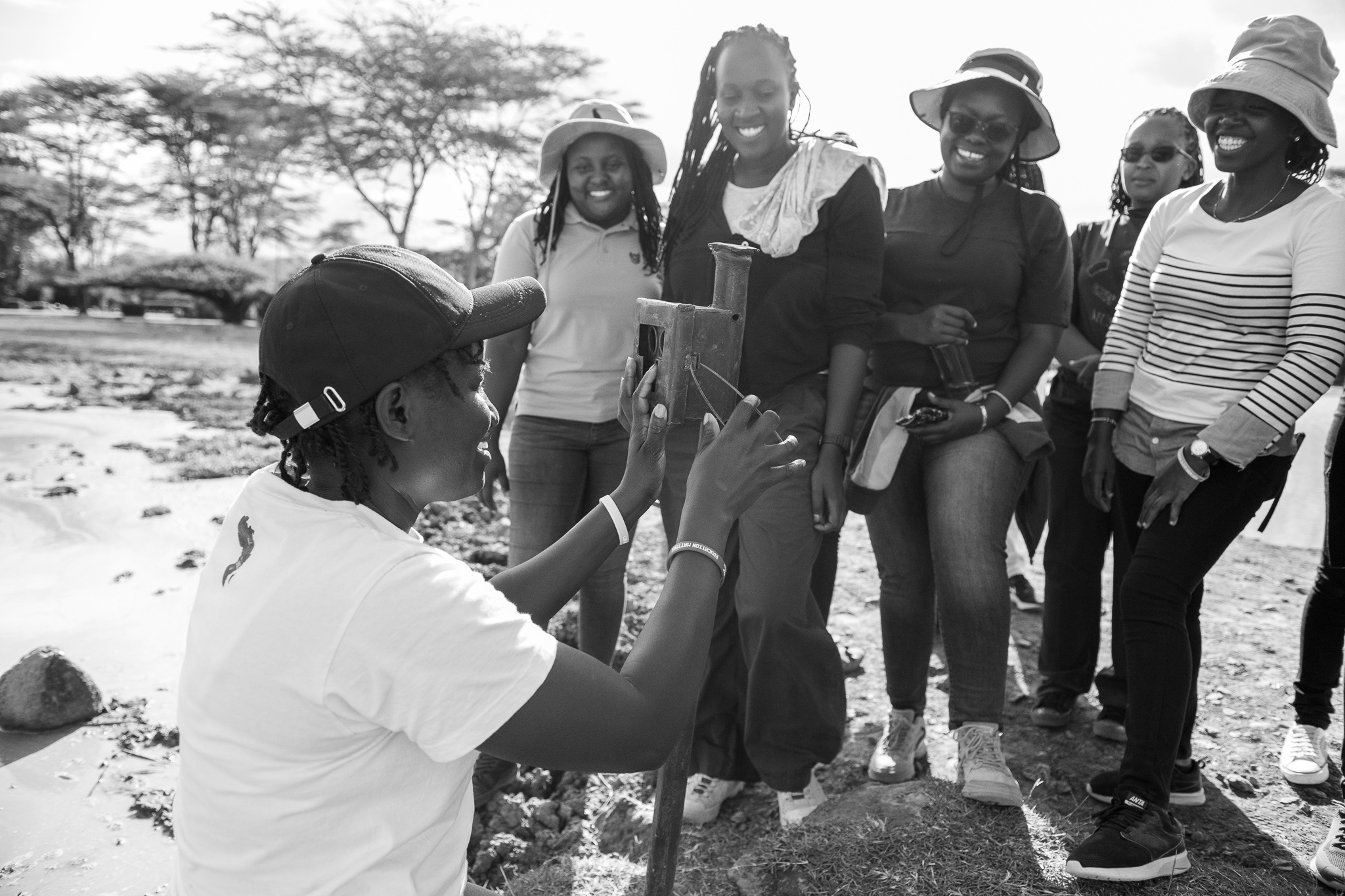
Professional Development and Leadership sessions
The Professional development and leadership sessions focused on the delivery of transformational african leadership experiences from women leaders in Kenya; Lucy Waruingi and Angela Kabari. Angela has extensive experience developing and deploying technology to monitor and protect endangered wildlife species. She also provides a unique perspective on the ethics of conservation technology and has a strong background in project management and leadership. Lucy focuses on using biological and environmental data for data-driven decisions to enhance local livelihoods in biodiversity rich areas. She holds degrees in GIS and Computer Science and has worked with the African Conservation Center for over 20 year, giving her a wealth of experience and expertise to share.
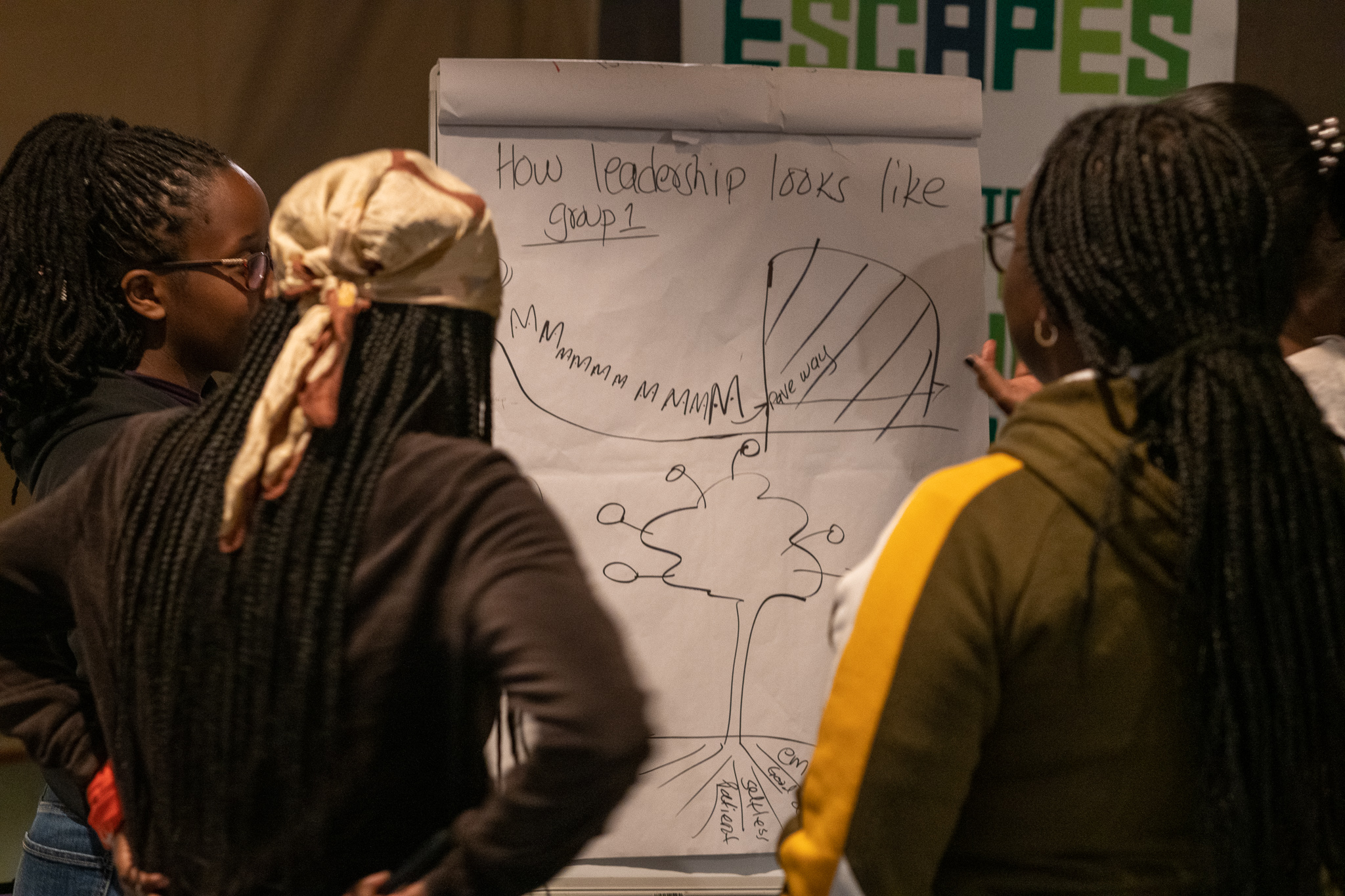
The professional development and Leadership sessions, which we dubbed ‘Fire-side chats’ were intimate round-table discussions on leadership, personal well-being, relationships at work and at home, time management, navigating the conservation field, leading teams, and so much more. They aimed to cultivate healthy and grounded pathways for success in the participants’ professional and personal lives. We were struck by the power of these authentic conversations and shared experiences to create bonds between the women leaders present in the room, all with diverse backgrounds, qualifications, and ages, and each with a unique range of challenges and opportunities facing them.
The fireside circle sessions were really enlightening in that the mentors allowed us a glimpse into their journey. It was intriguing that once they too had the butterflies and here they are! Mentors! So yes I can do it too!!
We believe that the connections built through these sessions will go a long way in building their confidence and self-esteem, which can be critical taking on leadership roles, but also provide them a closely-bonded network of support to help them navigate these steps.
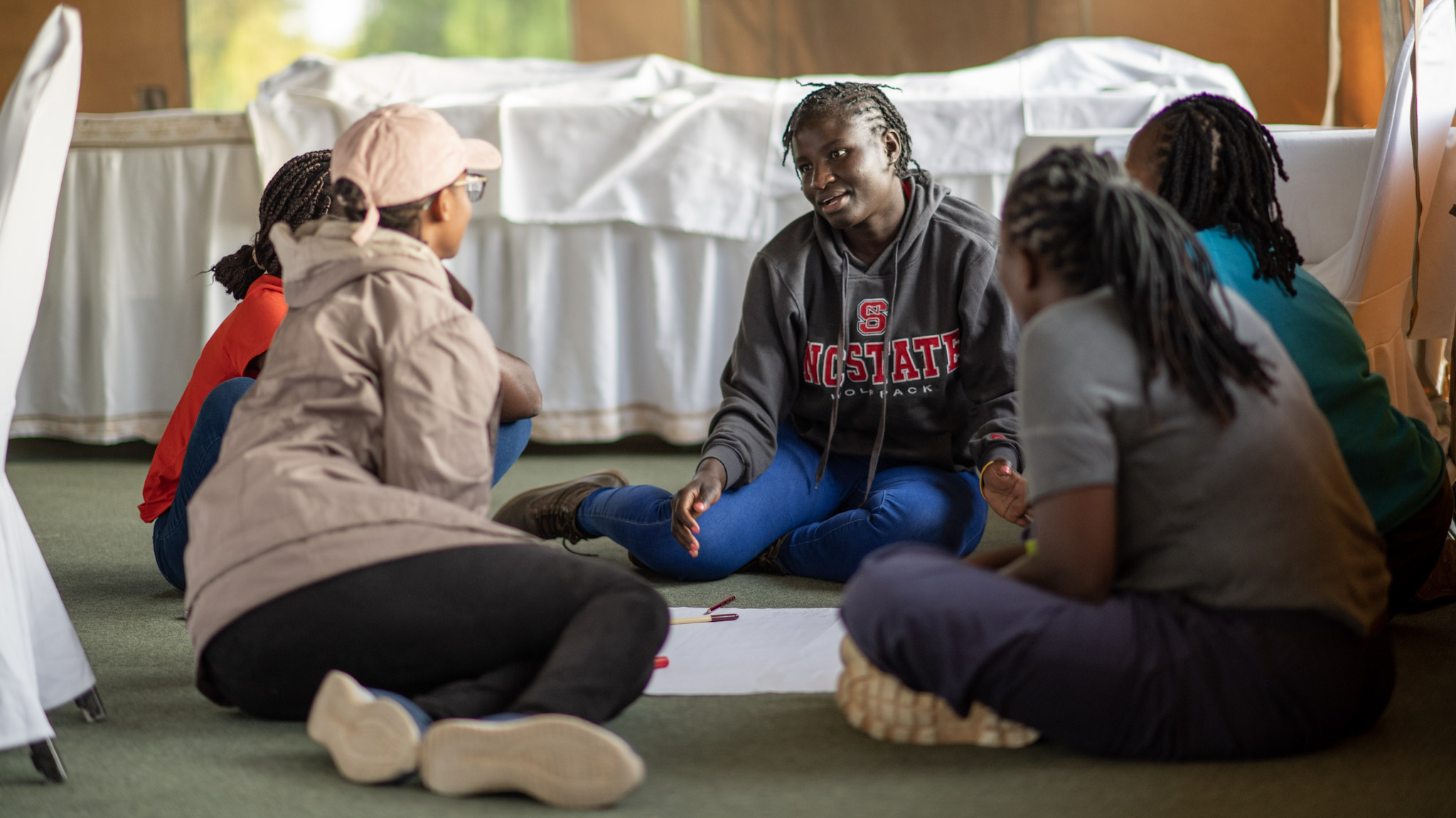
Looking ahead
The last day of the workshop was purposefully dedicated to reflective sessions in which participants were given time to review all that they had learned throughout the week, explore take-away lessons, and find areas of collaboration, improvement and reinvention. One of the final exercises pushed them each to identify and collectively commit to the projects they will implement in the next six months. It involved setting goals and next steps, as well as identifying areas of synergy throughout the cohort and places where they will need support to meet their objectives.
Just a few of the common project areas the participants are looking to work on in the next six months include:
- Exploring EarthRanger and Tableau to better integrate and visualize data collected from existing wildlife & asset monitoring and management projects in their host organizations.
- Using Data collection and analysis tools such as SMART, R Programming and Survey 123, to better inform management decisions.
- Exploring the use of Camera traps in monitoring wildlife; both in marine and terrestrial ecosystems.
- Using GIS to manage, analyze and visualize data collected.
To facilitate the achievement and delivery of these projects, WILDLABS, FFI, and Ol Pejeta Conservancy are committed to providing training resources and to directing the participants to people and networks who might offer their advice and support. The aim is to have participants apply lessons learned from the first workshop and virtual sessions in their own on-going conservation projects. When the participants come back for the second workshop in six months, they will have an opportunity to reflect on how this knowledge gained has helped shape their activities and what additional engagement may be valuable for them moving forward.
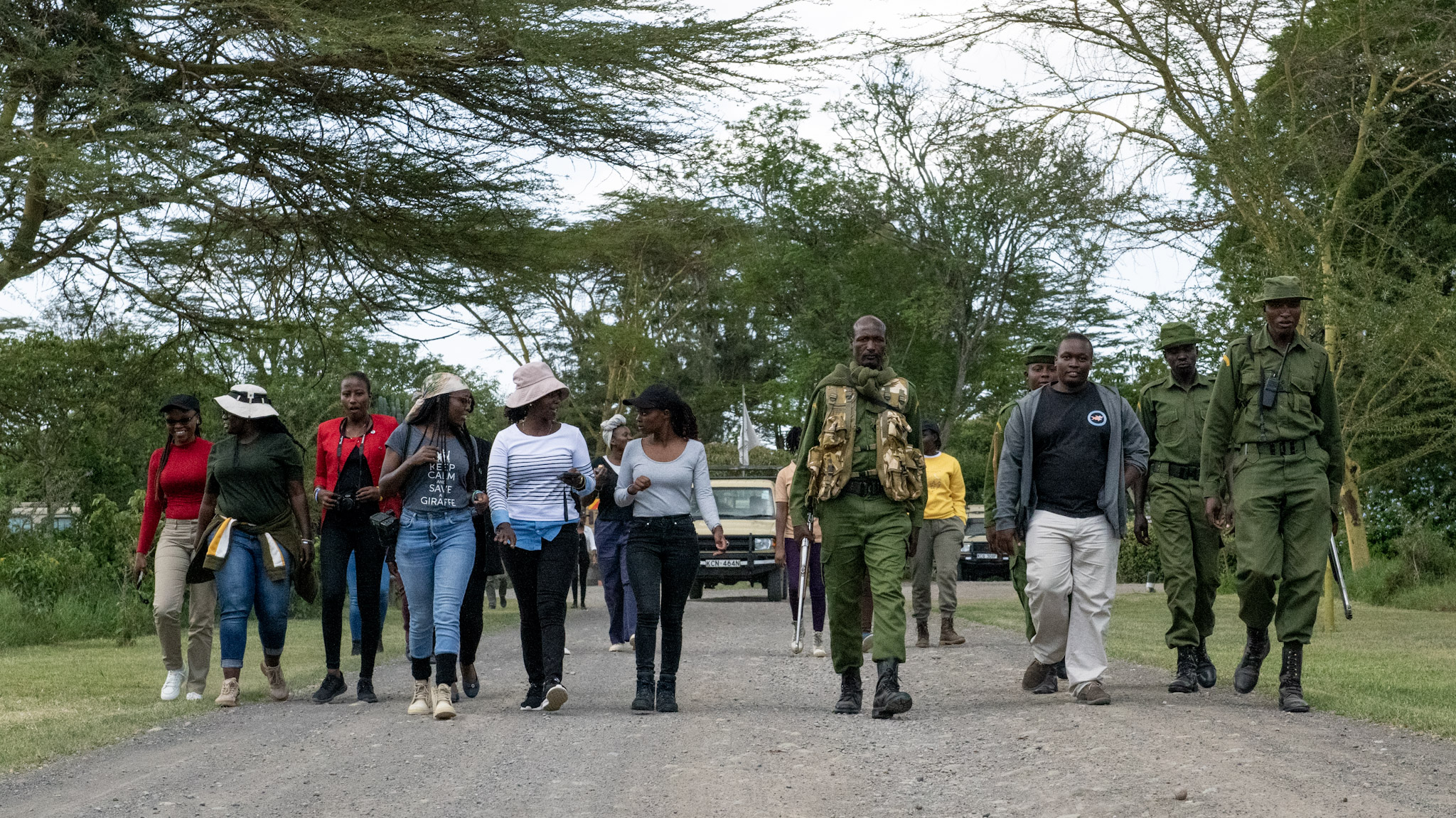
Till Next Time!
Based on feedback throughout the week and an assessment done after the workshop, we are confident that the participants left with new ideas and knowledge, a chunk of answered questions (and many more new ones arising), a valuable budding network, and strategic goals to advance their conservation technology efforts. We are now turning our focus to empowering and maintaining this cohort to continue guiding them in their project implementation, building the established networks, and supporting them to achieve their goals and objectives.
I really loved the monitoring techniques, especially after having collected data manually previously, which was more tiring. With the knowledge that I acquired I am planning not only to use it for my own good but to pass it to my colleagues who could be facing the same challenge.
The next phase of this Programme is to bring participants together for a 3-day virtual training on software tools and systems used in wildlife monitoring and management. The cohort will then join us for another in-person workshop later in the year to share their progress reports and give an account of how the knowledge they have gained has been useful in their work.
This first workshop is a step towards tailoring great initiatives to build conservation technology capacity, a benchmark for future training Programmes and an impact to the conservation technology field!
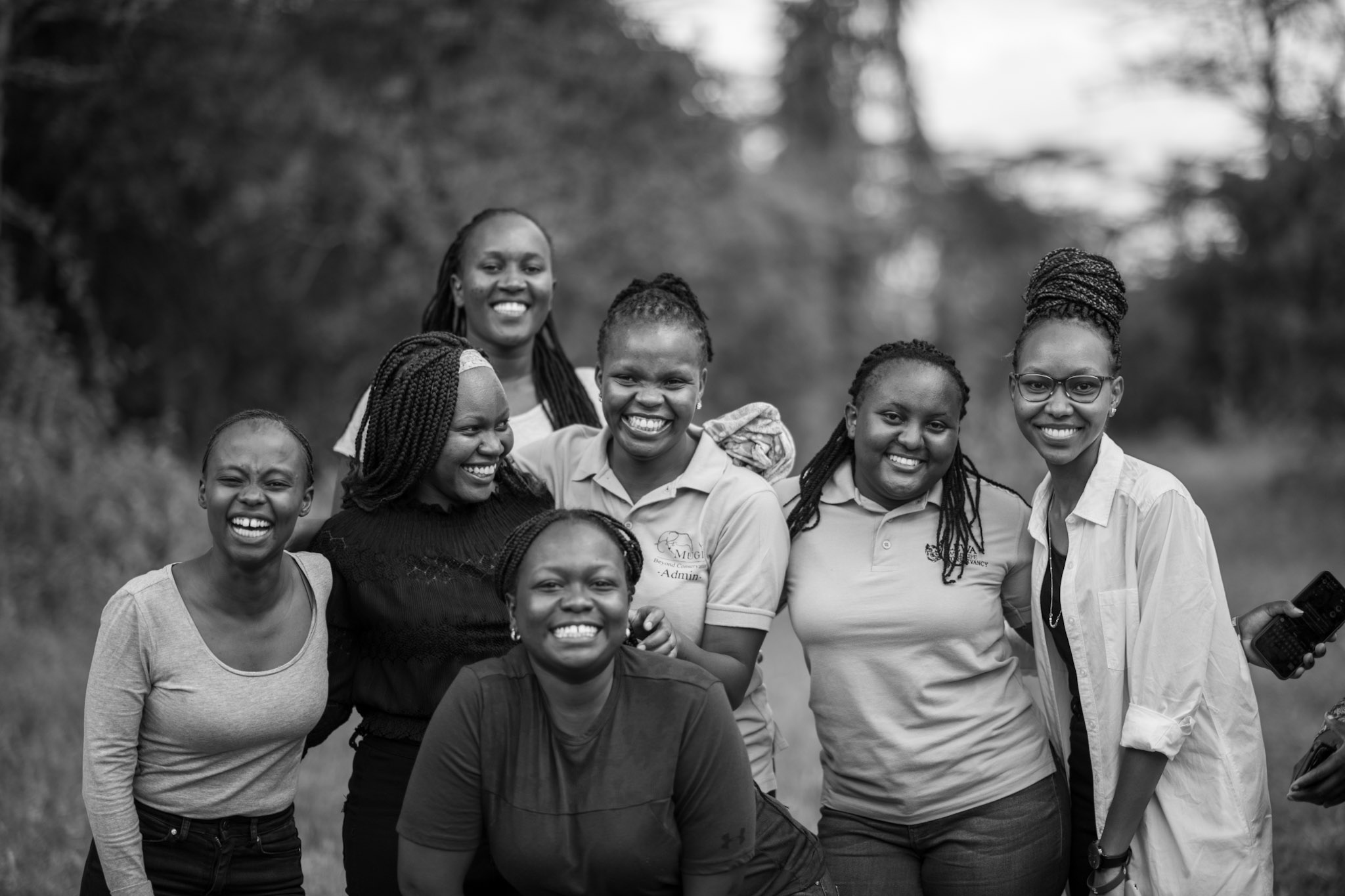



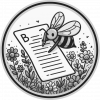
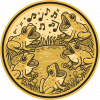
Add the first post in this thread.